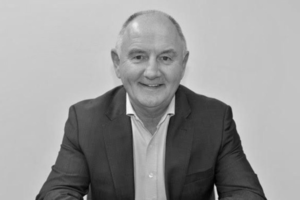At what price, scaled advice?BY CHRISTOPHER PAGE | WEDNESDAY, 30 OCT 2013 10:14AMThe momentum behind scaled advice is gathering pace. In the age of 'Do-It-Yourself' investing, the public expects to have the choice to select advice on a single issue rather ... Upgrade your subscription to access this article
Join the growing community of financial advisers
with unlimited access to our latest news, research and analysis of the industry.
Become a premium subscriber today. |
Latest News
Findex partners with brokerage firm to deliver 'best-in-class' service
Findex is entering a joint venture with Ortus Financial to bolster its expertise and breadth of its service.
ASIC funding levy to charge advisers $46.2m
The financial advice sector can expect to contribute $46.2 million to ASIC's industry funding levy for the 2025 financial year, new estimates show.
ASIC releases new relief for reportable situations regime
ASIC has provided AFSLs new reliefs to help them manage the reportable situations regime, which includes extending the length of investigations reportable from 30 days to 60 days.
TA Associates invests in Viridian Financial Group
TA Associates announced it will make an undisclosed investment in Viridian Financial Group to help the latter accelerate its next phase of growth.
Further Reading
Cover Story

Moving mountains
MAGDELINE JACOVIDES
FOUNDER & FINANCIAL PLANNER
MAZI WEALTH
FOUNDER & FINANCIAL PLANNER
MAZI WEALTH
On top of running a successful practice, Mazi Wealth founder Deline Jacovides is a fierce advocate for closing the superannuation gender gap and has built a highly popular social media presence that takes financial literacy to the next level. She tells Karren Vergara where her passion comes from and how she integrates it all with family life.
























Just because there may be a demand for scaled advice does not mean that advisers will necessarily choose to meet that demand. How many builders will turn up at your home to help you with your DIY home improvement? Why are qualified advisers in successful practises any different? Go to your local bank and ask to see a financial planner and you will get a taste for what to expect from scaled advice.
The greatest impediment to a flourishing advice sector is the regulator's misunderstanding of what the consumer wants. The web enabled world we live in provides everyday people with general information about almost anything - Dr Google is testament to this; but customers need to make sense of the information so readily available. The prescriptive methodology that the Financial services sector must deliver its advice is so redundant its almost laughable to most customers both sophisticated and unsophisticated when presented with yet reams more paper. This does not protect their interest, nor does it help them distil their thoughts or map out their goals. The financial services sector must come to terms with what is happening out there. The consumer doesn't want his entire life planned, he basically and mostly wants to know how best to go from A-B, in simple language. They don't need elaborate quoting documents detailing every fee that could be payable in every circumstance, that only frightens them away; they don't want to be interrogated by detailed fact finds asking what they consider to irrelevant questions. They actually want advice about things they are interested in and any advise worth his salt would intuitively understand where to take the conversation and what to ask.
Scott - couldn't agree with you more. Had a client yesterday who has all but retired from work. Earns about $4,000 pa (employed income) and $200pa in dividends. His accountant says it is stupid to do tax returns as the dividend income just covers the cost of doing the return, so see me about selling the shares. Hmmmm .... do I produce a Statement of Advice for this? With questions about 99% of possibilities being scoped out along with the warnings etc. Or as I know their situation just say "Sounds like a good idea" and then answer questions about where to stash the funds eg his wife's Super, emergency fund etc. Followed up with file noting the meeting and outcome. Total time spent - about one hour. Why one has to go through the full rigmarole I have no idea. Neither does the client. Would the client be better off? No. But unless I have discussed this in the last S of A presented and signed off on, I have to comply with producing another one and all the associated costs for which I have to bill the client. How long will the client keep that up? IMO - not long and he'll either stop seeing Planners all together or go somewhere else. I suspect that Bill Shorten would be very happy with that outcome as it means there is the likelihood of another Australian questionning the value of using a Planner.
The reason scaled advice is so expensive is that we need to create the same extensive document trail for a limited advice as we would for extensive advice. I still believe this is about the very poor education standards needed to become a financial adviser or planner. The regulator puts as much process between us and the client as possible because they don't believe the adviser is qualified to give the advice and with the current minimum standards they are absolutely right. I can pick up the phone and ask my accountant or Lawyer a question and they will answer it, probably invoice me, but I will not receive a written advice document and I don't want one. Before the purists get excited, of course they do written advice for extensive advice but in many cases I will just make a file note on who I spoke to, when and the outcome. They log their calls as well so there is protection in place. The difference I believe is that those professions have strong educational barriers to entry that give the regulator comfort that the advice they are giving is sound. Yes they make mistakes but the person you are talking to has a better chance of getting it right than last month's bank teller who has just finished his PS146 short course. Provide different rules for CFP's and AChFP's and then we can give scaled advice economically and all advisers will improve their education to get the carve out. Of course this will never be supported by the FSC or ISN as this would increase the expense of institutionally aligned advisers or life agents as they used to be known. Allow appropriately resourced and trained advisers to provide verbal scaled advice on invoice only and then we can really help the poorly advised consumer
The challenge with scaled or intra fund advice is how to manage the quality of the advice. I had a lady referred to us today who retired 6 weeks ago and needed specific advice on her age pension, paying down her debt, cash flow planning and a review of her investment strategy. The institutionally employed adviser she saw failed to make her aware of the need to lodge an intention to claim the age pension (costing her $2,400 in age pension), misadvised her as to how the allocated pension income is assessed for age pension leading her to have sleepless nights over what to do, told her to go to the bank to work out what to do with the loan rather than explain what a line of credit is and the value of keeping this open for emergencies. All he advised her to do was to switch from 70/30 growth to 50/50 - without even asking her about her attitude to risk or cash flow needs. A complete disaster. We managed to address all the issues for her. However, where would she be if she wasn't referred to us? This is the danger of intra fund and limited scale advice. Lets not be nieve.The institutional advisers that are most likely to participate in this area are rewarded if they get more FUM or more loans. Past performance is the best indicator of future performance. Limited advice and scale advice in the hands of big institutions is simply not in anyones interest. Will the super fund involved with this client pay her $2400 in compensation? How do I pursue that for her?